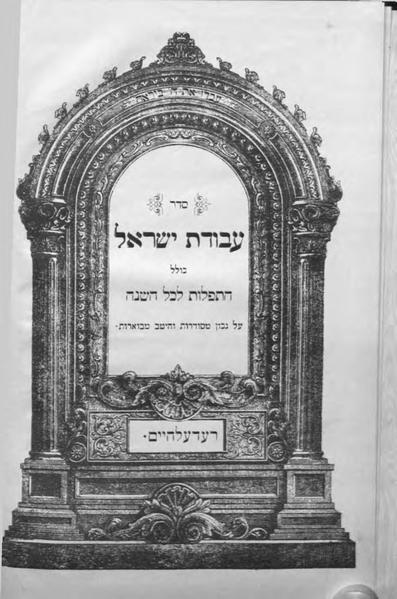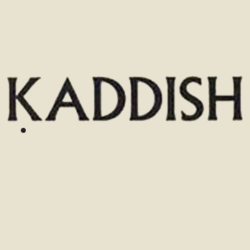| Source (Hebrew) | Translation (English) |
|---|---|
אֱלֹהֵֽינוּ וֵאלֹהֵי אֲבוֹתֵֽינוּ, זָכְרֵֽנוּ בְּזִכָּרוֹן טוֹב לְפָנֶֽיךָ, וּפָקְדֵֽנוּ בִּפְקֻדַּת יְשׁוּעָה וְרַחֲמִים מִשְּׁמֵי שְׁמֵי קֶֽדֶם. וּזְכָר לָֽנוּ יְיָ אֱלֹהֵֽינוּ אַהֲבַת הַקַּדְמוֹנִים אַבְרָהָם יִצְחָק וְיִשְׂרָאֵל עֲבָדֶֽיךָ, אֶת הַבְּרִית וְאֶת הַחֶֽסֶד וְאֶת הַשְּׁבוּעָה שֶׁנִּשְׁבַּֽעְתָּ לְאַבְרָהָם אָבִֽינוּ בְּהַר הַמּוֹרִיָּה, וְאֶת הָעֲקֵדָה שֶׁעָקַד אֶת יִצְחָק בְּנוֹ עַל גַּבֵּי הַמִּזְבֵּֽחַ, כַּכָּתוּב בְּתוֹרָתֶֽךָ: |
Our elo’ah and elo’ah of our ancestors, remember us with a good memory before you and visit us with a visitation of salvation and mercy from the heavens, the heavens of yore! And remember of us, YHVH our elo’ah the love of the eldritch ones Avraham, Yitsḥaq, and Yisrael — your servants the covenant, the loving-kindness, and the oath which you swore unto Avraham our forefather on Mt. Moriah, and the binding by which his son Yitsḥaq was bound upon the mizbéaḥ, as is written in your Torah: |
(בראשית כב א-יט) א וַיְהִ֗י אַחַר֙ הַדְּבָרִ֣ים הָאֵ֔לֶּה וְהָ֣אֱלֹהִ֔ים נִסָּ֖ה אֶת־אַבְרָהָ֑ם וַיֹּ֣אמֶר אֵלָ֔יו אַבְרָהָ֖ם וַיֹּ֥אמֶר הִנֵּֽנִי׃ ב וַיֹּ֡אמֶר קַח־נָ֠א אֶת־בִּנְךָ֨ אֶת־יְחִֽידְךָ֤ אֲשֶׁר־אָהַ֙בְתָּ֙ אֶת־יִצְחָ֔ק וְלֶ֨ךְ־לְךָ֔ אֶל־אֶ֖רֶץ הַמֹּרִיָּ֑ה וְהַעֲלֵ֤הוּ שָׁם֙ לְעֹלָ֔ה עַ֚ל אַחַ֣ד הֶֽהָרִ֔ים אֲשֶׁ֖ר אֹמַ֥ר אֵלֶֽיךָ׃ |
(Genesis 22:1-19) 1 Now after these events it was that Elohim tested Avraham and said to him: “Avraham!” He said: “Here I am.” 2 He said: “Pray take your son, your only-one, whom you love, Yitsḥaq, and go-you-forth to the land of Moriyya/Seeing, and offer him up there as an offering-up upon one of the mountains that I will tell you of.” |
ג וַיַּשְׁכֵּ֨ם אַבְרָהָ֜ם בַּבֹּ֗קֶר וַֽיַּחֲבֹשׁ֙ אֶת־חֲמֹר֔וֹ וַיִּקַּ֞ח אֶת־שְׁנֵ֤י נְעָרָיו֙ אִתּ֔וֹ וְאֵ֖ת יִצְחָ֣ק בְּנ֑וֹ וַיְבַקַּע֙ עֲצֵ֣י עֹלָ֔ה וַיָּ֣קׇם וַיֵּ֔לֶךְ אֶל־הַמָּק֖וֹם אֲשֶׁר־אָֽמַר־ל֥וֹ הָאֱלֹהִֽים׃ ד בַּיּ֣וֹם הַשְּׁלִישִׁ֗י וַיִּשָּׂ֨א אַבְרָהָ֧ם אֶת־עֵינָ֛יו וַיַּ֥רְא אֶת־הַמָּק֖וֹם מֵרָחֹֽק׃ ה וַיֹּ֨אמֶר אַבְרָהָ֜ם אֶל־נְעָרָ֗יו שְׁבוּ־לָכֶ֥ם פֹּה֙ עִֽם־הַחֲמ֔וֹר וַאֲנִ֣י וְהַנַּ֔עַר נֵלְכָ֖ה עַד־כֹּ֑ה וְנִֽשְׁתַּחֲוֶ֖ה וְנָשׁ֥וּבָה אֲלֵיכֶֽם׃ |
3 Avraham started-early in the morning, he saddled his donkey, he took his two serving-lads with him and Yitsḥaq his son, he split wood for the offering-up and arose and went to the place that Elohim had told him of. 4 On the third day Avraham lifted up his eyes and saw the place from afar. 5 Avraham said to his lads: “You stay here with the donkey, and I and the lad wish to go yonder, we wish to bow down and then return to you.” |
ו וַיִּקַּ֨ח אַבְרָהָ֜ם אֶת־עֲצֵ֣י הָעֹלָ֗ה וַיָּ֙שֶׂם֙ עַל־יִצְחָ֣ק בְּנ֔וֹ וַיִּקַּ֣ח בְּיָד֔וֹ אֶת־הָאֵ֖שׁ וְאֶת־הַֽמַּאֲכֶ֑לֶת וַיֵּלְכ֥וּ שְׁנֵיהֶ֖ם יַחְדָּֽו׃ ז וַיֹּ֨אמֶר יִצְחָ֜ק אֶל־אַבְרָהָ֤ם אָבִיו֙ וַיֹּ֣אמֶר אָבִ֔י וַיֹּ֖אמֶר הִנֶּ֣נִּֽי בְנִ֑י וַיֹּ֗אמֶר הִנֵּ֤ה הָאֵשׁ֙ וְהָ֣עֵצִ֔ים וְאַיֵּ֥ה הַשֶּׂ֖ה לְעֹלָֽה׃ |
6 Avraham took the wood for the offering-up, he placed them upon Yitsḥaq his son, in his hand he took the fire and the knife. Thus the two of them went together. 7 Yitsḥaq said to Avraham his father, he said: “Father!” He said: “Here I am, my son.” He said: “Here are the fire and the wood, but where is the lamb for the offering-up?” |
ח וַיֹּ֙אמֶר֙ אַבְרָהָ֔ם אֱלֹהִ֞ים יִרְאֶה־לּ֥וֹ הַשֶּׂ֛ה לְעֹלָ֖ה בְּנִ֑י וַיֵּלְכ֥וּ שְׁנֵיהֶ֖ם יַחְדָּֽו׃ ט וַיָּבֹ֗אוּ אֶֽל־הַמָּקוֹם֮ אֲשֶׁ֣ר אָֽמַר־ל֣וֹ הָאֱלֹהִים֒ וַיִּ֨בֶן שָׁ֤ם אַבְרָהָם֙ אֶת־הַמִּזְבֵּ֔חַ וַֽיַּעֲרֹ֖ךְ אֶת־הָעֵצִ֑ים וַֽיַּעֲקֹד֙ אֶת־יִצְחָ֣ק בְּנ֔וֹ וַיָּ֤שֶׂם אֹתוֹ֙ עַל־הַמִּזְבֵּ֔חַ מִמַּ֖עַל לָעֵצִֽים׃ י וַיִּשְׁלַ֤ח אַבְרָהָם֙ אֶת־יָד֔וֹ וַיִּקַּ֖ח אֶת־הַֽמַּאֲכֶ֑לֶת לִשְׁחֹ֖ט אֶת־בְּנֽוֹ׃ |
8 Avraham said: “Elohim will see-for-himself to the lamb for the offering-up, my son.” Thus the two of them went together. 9 They came to the place that Elohim had told him of; there Avraham built the place-for-slaughter and arranged the wood and bound Yitsḥaq his son and placed him on the place-for-slaughter atop the wood. 10 And Avraham stretched out his hand, he took the knife to slay his son. |
יא וַיִּקְרָ֨א אֵלָ֜יו מַלְאַ֤ךְ יְהֹוָה֙ מִן־הַשָּׁמַ֔יִם וַיֹּ֖אמֶר אַבְרָהָ֣ם ׀ אַבְרָהָ֑ם וַיֹּ֖אמֶר הִנֵּֽנִי׃ יב וַיֹּ֗אמֶר אַל־תִּשְׁלַ֤ח יָֽדְךָ֙ אֶל־הַנַּ֔עַר וְאַל־תַּ֥עַשׂ ל֖וֹ מְא֑וּמָה כִּ֣י ׀ עַתָּ֣ה יָדַ֗עְתִּי כִּֽי־יְרֵ֤א אֱלֹהִים֙ אַ֔תָּה וְלֹ֥א חָשַׂ֛כְתָּ אֶת־בִּנְךָ֥ אֶת־יְחִידְךָ֖ מִמֶּֽנִּי׃ |
11 But YHVH‘s messenger called to him from heaven and said: “Avraham! Avraham!” He said: “Here I am.” 12 He said:[1] Abraham takes the knife to slaughter his son, and the angel then exclaims how righteous Abraham was for not sparing Isaac. In vs. 19 Abraham returns alone, and Isaac does not appear again in the Elohistic narrative which suggests that according to E he was sacrificed and not saved as in vss. 11-12. “Do not stretch out your hand against the lad, do not do anything to him! For[2] Seeing that Abraham does not return with his son, I conjecture that the angel’s command to Abraham is a later addition to the text, meant to rescue Isaac so that he will become a link in the genealogical chain which will lead to the Israelites. now I know that you are in awe of Elohim – you have not withheld your son, your only-one, from me.”[3] Read on its own this half verse (since you have not withheld your son…) implies that not only was Abraham prepared to sacrifice his son, but that he actually went through with it. |
יג וַיִּשָּׂ֨א אַבְרָהָ֜ם אֶת־עֵינָ֗יו וַיַּרְא֙ וְהִנֵּה־אַ֔יִל אַחַ֕ר נֶאֱחַ֥ז בַּסְּבַ֖ךְ בְּקַרְנָ֑יו וַיֵּ֤לֶךְ אַבְרָהָם֙ וַיִּקַּ֣ח אֶת־הָאַ֔יִל וַיַּעֲלֵ֥הוּ לְעֹלָ֖ה תַּ֥חַת בְּנֽוֹ׃ יד וַיִּקְרָ֧א אַבְרָהָ֛ם שֵֽׁם־הַמָּק֥וֹם הַה֖וּא יְהֹוָ֣ה ׀ יִרְאֶ֑ה אֲשֶׁר֙ יֵאָמֵ֣ר הַיּ֔וֹם בְּהַ֥ר יְהֹוָ֖ה יֵרָאֶֽה׃ |
13 Avraham lifted up his eyes and saw: here, a ram was caught behind in the thicket by its horns! Avraham went, he took the ram and offered it up as an offering-up in place of his son. 14 Avraham called the name of that place: ‘YHVH Yir’eh’ (YHVH sees). As the saying is today: ‘On YHVH‘s mountain (it) is seen.’ |
טו וַיִּקְרָ֛א מַלְאַ֥ךְ יְהֹוָ֖ה אֶל־אַבְרָהָ֑ם שֵׁנִ֖ית מִן־הַשָּׁמָֽיִם׃ טז וַיֹּ֕אמֶר בִּ֥י נִשְׁבַּ֖עְתִּי נְאֻם־יְהֹוָ֑ה כִּ֗י יַ֚עַן אֲשֶׁ֤ר עָשִׂ֙יתָ֙ אֶת־הַדָּבָ֣ר הַזֶּ֔ה וְלֹ֥א חָשַׂ֖כְתָּ אֶת־בִּנְךָ֥ אֶת־יְחִידֶֽךָ׃ יז כִּֽי־בָרֵ֣ךְ אֲבָרֶכְךָ֗ וְהַרְבָּ֨ה אַרְבֶּ֤ה אֶֽת־זַרְעֲךָ֙ כְּכוֹכְבֵ֣י הַשָּׁמַ֔יִם וְכַח֕וֹל אֲשֶׁ֖ר עַל־שְׂפַ֣ת הַיָּ֑ם וְיִרַ֣שׁ זַרְעֲךָ֔ אֵ֖ת שַׁ֥עַר אֹיְבָֽיו׃ יח וְהִתְבָּרְכ֣וּ בְזַרְעֲךָ֔ כֹּ֖ל גּוֹיֵ֣י הָאָ֑רֶץ עֵ֕קֶב אֲשֶׁ֥ר שָׁמַ֖עְתָּ בְּקֹלִֽי׃ |
15 Now YHVH‘s messenger called to Avraham a second time from heaven 16 and said: “By myself I swear – YHVH‘s utterance – indeed, because you have done this thing, have not withheld your son, your only-one, 17 indeed, I will bless you, bless you, I will make your seed many, yes, many, like the stars of the heavens and like the sand that is on the shore of the sea; your seed shall inherit the gate of their enemies, 18 all the nations of the earth shall enjoy blessing through your seed, in consequence of your hearkening to my voice.”[4] The angel’s second call is widely seen as a secondary addition to this narrative. Couldn’t the angel have delivered his message when he first called upon Abraham? Moreover, the promise theme in vss. 16-18 is a prominent feature of J narratives which have a wider historical scope, as opposed to the narrower scope of Elohistic narratives. Note also the abrupt switch to “Elohim” (God)[vs. 12] from “YHVH” [vs. 14]. |
יט וַיָּ֤שׇׁב אַבְרָהָם֙ אֶל־נְעָרָ֔יו וַיָּקֻ֛מוּ וַיֵּלְכ֥וּ יַחְדָּ֖ו אֶל־בְּאֵ֣ר שָׁ֑בַע וַיֵּ֥שֶׁב אַבְרָהָ֖ם בִּבְאֵ֥ר שָֽׁבַע׃ |
19 Avraham returned to his lads, they arose and went together to Be’er-shava. And Avraham stayed in Be’er-shava.[5] Abraham returning alone from the mountain as opposed to walking together with Isaac in vss. 6 and 8 implies that he was sacrificed. This verse has engendered many post-biblical retellings and elaborations to this narrative. |
רִבּוֹנוֹ שֶׁל עוֹלָם, יְהִי רָצוֹן מִלְּפָנֶֽיךָ, יְיָ אֱלֹהֵֽינוּ וֵאלֹהֵי אֲבוֹתֵֽינוּ, שֶׁתִּזְכָּר לָֽנוּ בְּרִית אֲבוֹתֵֽינוּ כְּמוֹ שֶׁכָּבַשׁ אַבְרָהָם אָבִֽינוּ אֶת רַחֲמָיו מִבֶּן יְחִידוֹ, וְרָצָה לִשְׁחוֹט אוֹתוֹ כְּדֵי לַעֲשׂוֹת רְצוֹנֶֽךָ, כֵּן יִכְבְּשׁוּ רַחֲמֶֽיךָ אֶת כַּעַסְךָ מֵעָלֵֽינוּ, וְיָגֹֽלּוּ רַחֲמֶֽיךָ עַל מִדּוֹתֶֽיךָ, וְתִכָּנֵס אִתָּֽנוּ לִפְנִים מִשּׁוּרַת דִּינֶֽיךָ, |
Master of the Cosmos, may it be your will, YHVH our elo’ah and elo’ah of our ancestors to remember in our favor the covenant of our ancestors. Even as Avraham our forefather held back his compassion from his only son and desired to slay him in order to do your will, so may your mercy suppress your anger from us, let your compassion push aside your other attributes, and deal with us better than the order of your law requires[6] or, as paraphrased by Paltiel Birnbaum, “let your compassion prevail over your acts of retaliation.” There is some variation in the liturgical language here for invoking divine compassion and mercy. |
וְתִתְנַהֵג עִמָּֽנוּ, יְיָ אֱלֹהֵֽינוּ, בְּמִדַּת הַחֶֽסֶד וּבְמִדַּת הָרַחֲמִים. וּבְטוּבְךָ הַגָּדוֹל, יָשׁוּב חֲרוֹן אַפְּךָ מֵעַמְּךָ וּמֵעִירְךָ וּמֵאַרְצְךָ וּמִנַּחֲלָתֶֽךָ. |
Be lenient with us, YHVH our elo’ah and deal with us kindly and mercifully. In your great goodness, may your fierce wrath turn away from your people, from your city, from your land, and from your legacy. |
וְקַיֶּם לָֽנוּ, יְיָ אֱלֹהֵֽינוּ, אֶת הַדָּבָר שֶׁהִבְטַחְתָּֽנוּ עַל יְדֵי מֹשֶׁה עַבְדֶּֽךָ, כָּאָמוּר: וְזָכַרְתִּי אֶת בְּרִיתִי יַעֲקוֹב, וְאַף אֶת בְּרִיתִי יִצְחָק, וְאַף אֶת בְּרִיתִי אַבְרָהָם אֶזְכֹּר, וְהָאָֽרֶץ אֶזְכֹּר. |
Fulfill, YHVH our elo’ah what you have promised us through Mosheh your servant, as it is said: “I will remember my covenant with Yaaqov, also my covenant with Yitsḥaq, and my covenant with Avraham will I remember, and I will remember the Land.” (Leviticus 26:42) |
The translation of the prayers bookending the biblical text is adapted from that of Rabbi Jacob Bosniac in his Tefilot Yisrael Yimei Ḥol (1937) and of Paltiel Birnbaum from his HaSiddur haShalem (1949). The Masoretic text presented here is from Rabbi Dr. Seth (Avi) Kadish’s Miqra al pi ha-Mesorah. For the translation of the Aqeidah in English, I have adapted the translation of Everett Fox in the Schocken Bible (Everett Fox 1995), mostly to re-Hebraize divine names, place names, and personal names, but I have made other changes. In place of “slaughter-site,” I have offered “place-for-slaughter.” Aside from this, I have made minor punctuation changes. (To buy a print copy of the complete translation of The Schocken Bible vol. 1: The Five Books of Moses, visit Penguin/Random House.)
Notes
| 1 | Abraham takes the knife to slaughter his son, and the angel then exclaims how righteous Abraham was for not sparing Isaac. In vs. 19 Abraham returns alone, and Isaac does not appear again in the Elohistic narrative which suggests that according to E he was sacrificed and not saved as in vss. 11-12. |
|---|---|
| 2 | Seeing that Abraham does not return with his son, I conjecture that the angel’s command to Abraham is a later addition to the text, meant to rescue Isaac so that he will become a link in the genealogical chain which will lead to the Israelites. |
| 3 | Read on its own this half verse (since you have not withheld your son…) implies that not only was Abraham prepared to sacrifice his son, but that he actually went through with it. |
| 4 | The angel’s second call is widely seen as a secondary addition to this narrative. Couldn’t the angel have delivered his message when he first called upon Abraham? Moreover, the promise theme in vss. 16-18 is a prominent feature of J narratives which have a wider historical scope, as opposed to the narrower scope of Elohistic narratives. Note also the abrupt switch to “Elohim” (God)[vs. 12] from “YHVH” [vs. 14]. |
| 5 | Abraham returning alone from the mountain as opposed to walking together with Isaac in vss. 6 and 8 implies that he was sacrificed. This verse has engendered many post-biblical retellings and elaborations to this narrative. |
| 6 | or, as paraphrased by Paltiel Birnbaum, “let your compassion prevail over your acts of retaliation.” There is some variation in the liturgical language here for invoking divine compassion and mercy. |

“עֲקֵדַת יִצְחָק (אשכנז) | The invocation of Aqédat Yitsḥaq (the Binding of Isaac, Genesis 22:1-19) in the morning (nusaḥ Ashkenaz)” is shared through the Open Siddur Project with a Creative Commons Attribution-ShareAlike 4.0 International copyleft license.








Leave a Reply